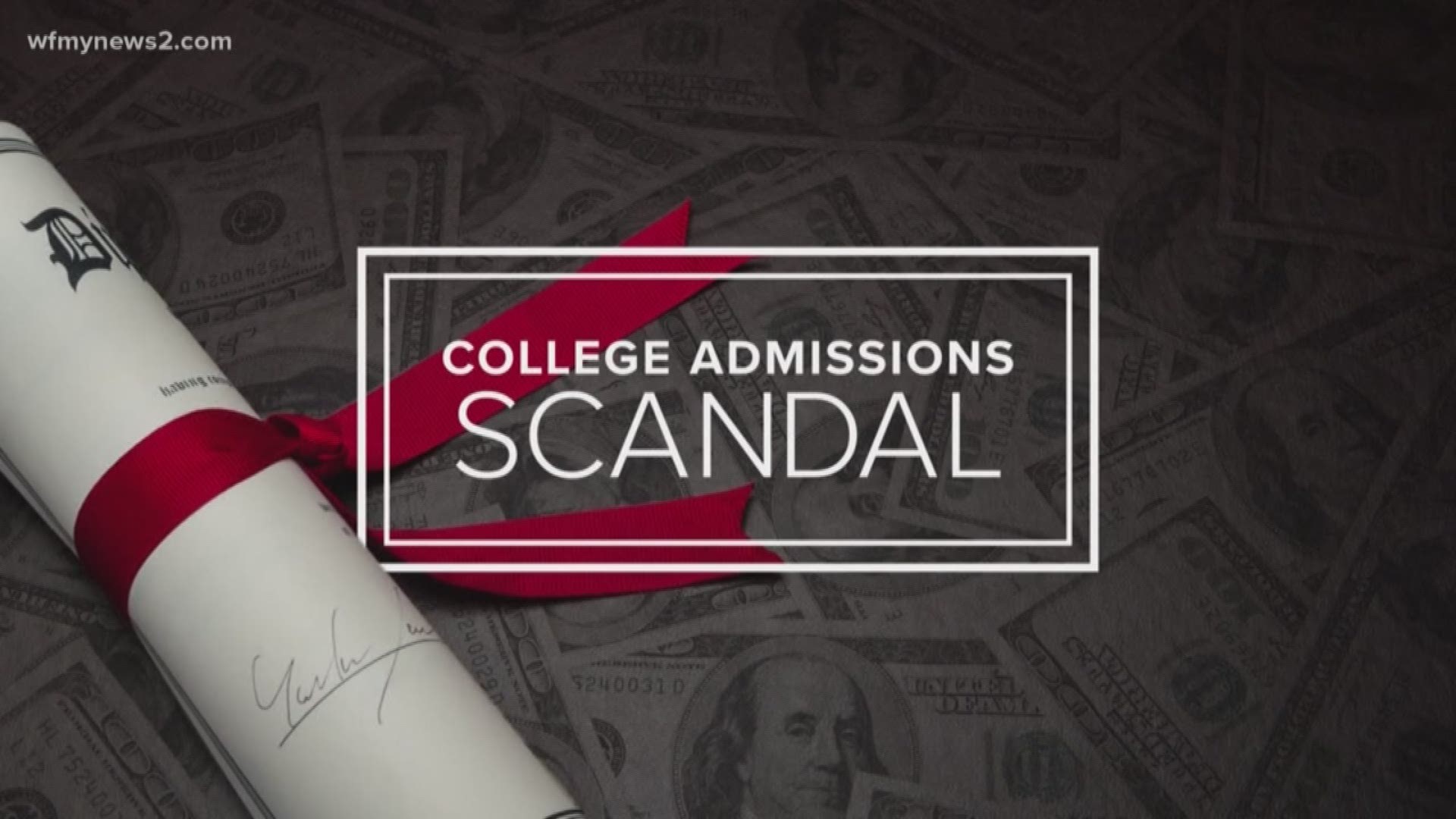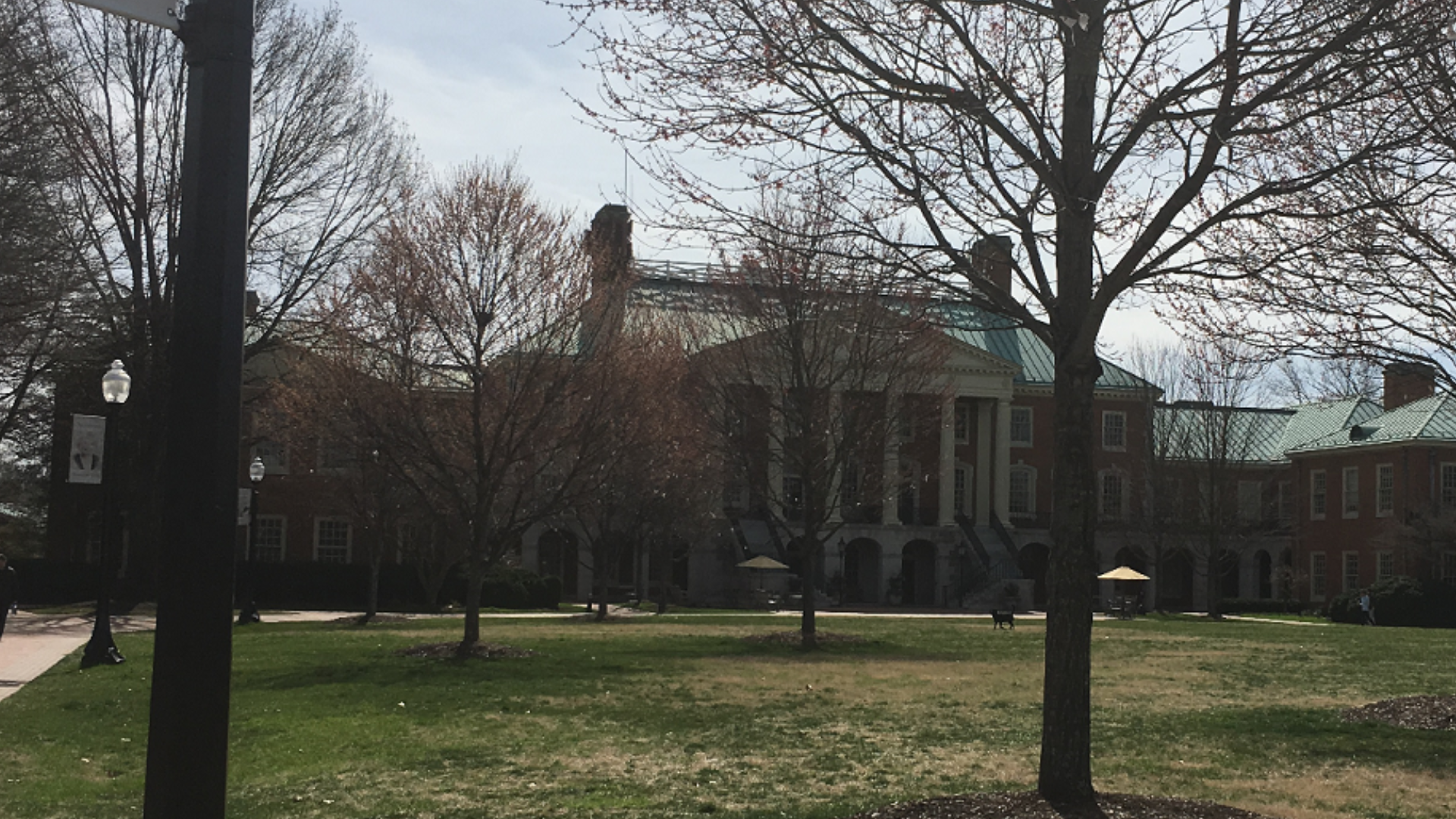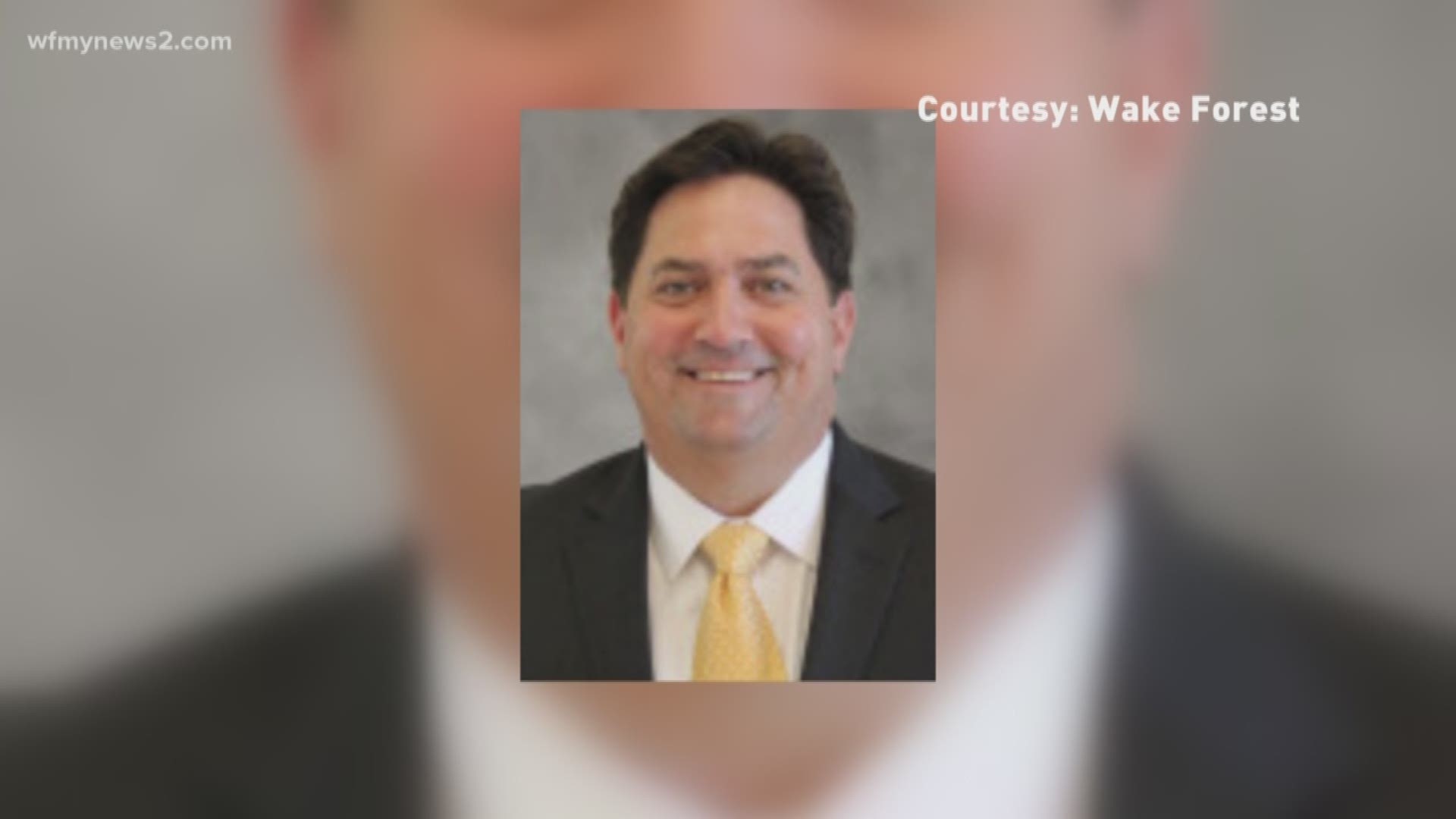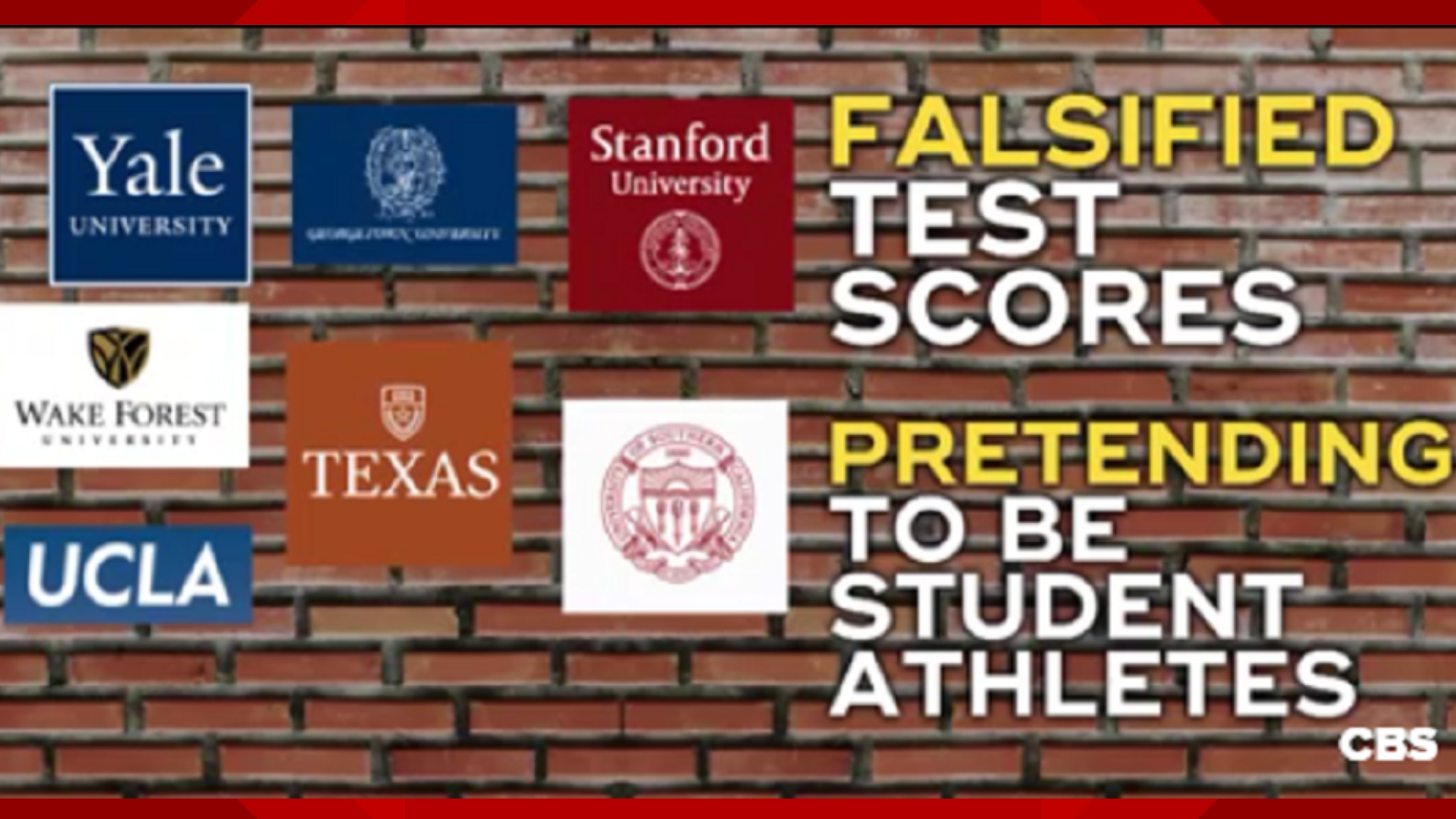Wake Forest University is among a number of colleges and universities named in a nationwide bribery scheme, according to the US Department of Justice (USDOJ).
The USDOJ says the admissions scam involved parents bribing coaches to admit their children as athletes, regardless of athletic ability.
During a news conference Tuesday, DOJ announced actresses Lori Loughlin and Felicity Huffman are among nearly 50 people indicted Tuesday in the college admission bribery scandal. The racketeering conspiracy case includes the parents of applicants, ACT and SAT administrators, a test proctor, and coaches at universities including Yale, Stanford, Georgetown and the University of Southern California.
Prosecutors say the coaches were bribed to indicate students were being considered as athletic recruits because universities "typically apply different criteria when evaluating applications from students with demonstrated athletic abilities."
What's Wake Forest's Alleged Involvement?
WFMY News 2 has confirmed that the allegations includes the Volleyball coach at the school.
The university released this statement: "Wake Forest is aware of the allegations regarding head volleyball coach Bill Ferguson. The University has retained outside legal counsel to look into this matter. Wake Forest has placed Ferguson on administrative leave and named Randi Smart interim coach, effective immediately. We will have no further comment at this time".
Court documents show the exact claims against Wake Forest:
V. Wake Forest
As yet another example, in or about 2017, SINGER directed $100,000 from one of the KWF charitable accounts to accounts controlled by the women's volleyball coach at Wake Forest, including $10,000 to the Wake Forest Deacon Club, $40,000 to Wake Forest Women's Volleyball, and $50,000 to a private volleyball camp the Wake Forest coach controlled.
In exchange for this money, the Wake Forest coach agreed to designate the daughter of one of SINGER'S clients--who had previously applied to Wake Forest and been placed on the wait list--as a recruit for the women's volleyball team, thereby facilitating her admission to the university.
Parents charged in the alleged scheme are accused of paying an admissions consultant, William Singer, a total of $25 million between 2011 and February 2019 for the arrangement. Boston U.S. Attorney Andrew Lelling said at a press conference Tuesday that Singer used some of that money to bribe test administrators and college coaches.
The FBI investigation into the alleged scheme was nicknamed "Operation Varsity Blues."
A total of 33 parents were charged.
"These parents are a catalogue of wealth and privilege," Lelling said.
Full Document:
How much did parents pay for for this, and how much did coaches pocket?
The DOJ report shows parents paid anywhere from $200,000 to $6.5 million dollar for guaranteed admission.
Most parents paid Singer between $250,000 and $400,000 per student.
The report wasn't specific as to how much each individual coach pocketed from the scheme.
Investigators did discuss one example from Yale. They say the Head Coach of the women's soccer team accepted $400,000 from Singer, and listed the student as a recruit even though the student never played soccer before. The student's parents paid Singer $1.2 million for that service.
How did all of this money go undetected?
Investigators say William Singer set up a phony charity called the Key Worldwide Foundation. Parents would pay him to get their children admitted to schools under the guise of the charity.
The parents were even able to write off the payments on their federal income tax returns.
Why didn't schools know the students weren't actually athletes?
Singer went to great lengths to falsify the students' status as an athlete. Investigators say he put together fake athletic credentials for the students.
He'd include time spent playing at clubs and high school teams, all of which were false. The credentials sometimes even included stock photos of actual student athletes with the face of his client's child photo shopped on top.
The DOJ says Singer then bribed coaches to use one of the slots on the team for his client's child. The coach would accept the falsified credentials, and present those to the university.
Investigators say, in general, schools did not know the student wasn't athlete, and didn't know the documents were fake.
How did they falsify the ACT and SAT scores?
The report shows parents negotiated with Singer to have their students achieve a certain score. The goal was reach a score that wouldn't draw attention to the student, something just high enough to get them in and not raise questions.
Once they agreed on a score, Singer bribed test administrators or proctors giving the exams.
Investigators say Singer falsified doctors notes, saying the student needed to take the test alone. After the student handed in the exam, the proctor or administrator would make changes to achieve the agreed upon score.
Wouldn't the student's bad grades raise a red flag?
Investigators say, in many cases, Singer would pay off people to take online high school courses for his client's students. They would work to achieve grades just high enough to get into the desired schools, but not too high so as to raise questions.
Did the students know their parents were doing this?
Investigators say, in most cases, the students did not know what their parents were up to, but some did.
One investigator detailed a case where the mom and daughter both talked to Singer on a conference call about the scheme. They didn't give any specific details.
The DOJ says no students are charged right now, and they aren't sure if any will be charged in the future.
They say, overall, parents are the primary movers in the schemes.
Many students benefiting from the scheme are still enrolled at their schools today.
The ones who got in from falsified athletic credentials either faked an injury, never showed up, or quit shortly after joining the team.
Investigators say the students did not receive athletic scholarships.
What happens to William Singer?
Singer is expected to plead guilty to racketeering and other charges at 2:30 p.m. on Tuesday.
"The charges brought forth today are troubling and should be a concern for all of higher education. We are looking into these allegations to determine the extent to which NCAA rules may have been violated."




